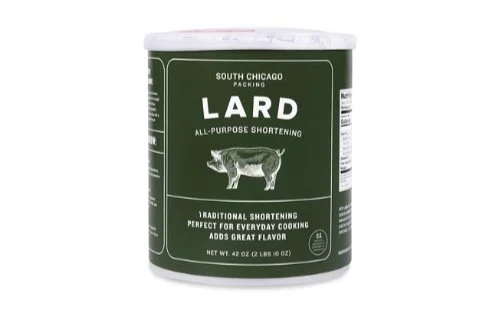Can You Drink Sparkling Water on a Carnivore Diet?
Exploring Beverage Options
The carnivore diet, consisting solely of animal products, excludes most beverages except water, bone broth, and certain low-lactose dairy options. When it comes to incorporating sparkling water into a carnivore diet, there are nuances that adherents must consider. Sparkling water, in its purest form, is carbonated water and may be a suitable drink choice for those on this restrictive regimen; however, attention must be paid to any additional ingredients that could disqualify it from the diet's strict parameters.
Carbonation itself doesn't disqualify sparkling water from the carnivore diet, as it simply refers to the dissolution of carbon dioxide gas in water, creating that characteristic fizz. Pure sparkling water without added sweeteners, flavors, or other plant-derived additives aligns with the carnivore diet's principles. On the other hand, flavored sparkling waters often contain extracts or sweeteners derived from plants, which would not be permissible within the diet.
Maintaining proper hydration is critical on any diet, including the carnivore diet, and sparkling water can offer a palate-pleasing alternative to still water. Advocates of the diet emphasize the importance of consuming beverages that do not contradict the fundamental approach of eliminating plant-based foods and ingredients, which means inspecting labels for any non-animal additives is essential when selecting sparkling water. With this precaution, individuals following the carnivore diet can enjoy the refreshment of sparkling water while staying within the boundaries of their dietary guidelines.
Understanding the Carnivore Diet
The carnivore diet focuses on the consumption of animal products and excludes plant-based foods. It is a zero-carb diet that prioritizes meat and animal products.
Core Principles of the Carnivore Diet
The carnivore diet operates on the principle that human beings should consume primarily animal products—meat, fat, and offal. This diet advocates for a high intake of protein and fat while maintaining zero carbohydrate consumption. It is based on the idea that early humans thrived on a meat-centric diet.
Zero-Carb: Elimination of all carbohydrate sources to focus solely on animal products.
Animal Products: The diet consists almost exclusively of meat, fish, eggs, and select dairy products.
Nutrient Intake: Although devoid of plant-based nutrients, adherents believe animal products provide all the necessary vitamins and minerals for health, including Vitamin C typically associated with fruits.
Allowed Foods and Drink on a Carnivore Diet
The carnivore diet allows for the consumption of:
Meats: All types of unprocessed meats are considered the cornerstone of this diet.
Animal Products: This includes eggs, lard, bone marrow, organ meats, and some dairy, notably high-fat options like butter and heavy cream.
Water: Pure water is a fundamental part of this diet to maintain hydration.
Allowed beverages are usually limited to water and some include bone broth, which is rich in nutrients.
Enjoy the convenience of doorstep delivery when you buy lard online!
Health Benefits and Risks
Individuals on the carnivore diet report various health benefits, though scientific research on the diet's efficacy and safety is limited.
Health Benefits: Some claim improvements in energy levels, mental clarity, muscle gains, and weight loss due to reduced appetite from high protein and fat intake.
Nutrients: Proponents suggest that the diet can provide all necessary nutrients from animal products, although there may be a risk of certain deficiencies without careful planning.
Risks: Potential risks include heart disease due to high saturated fat intake, and concerns exist regarding the lack of fiber, which may affect digestion. Critics mention the possibility of depression due to the restrictive nature of the diet and the importance of a balanced intake of various food groups for overall health.
Role of Hydration
Maintaining adequate hydration is essential when following a carnivore diet, as it supports metabolic processes and influences overall health.
Importance of Staying Hydrated
Proper hydration is crucial for individuals on a carnivore diet. Water serves as the medium for various biochemical reactions and aids in the digestion and absorption of nutrients. Electrolytes, such as sodium, potassium, magnesium, and calcium, are pivotal for maintaining fluid balance and nerve function. These electrolytes become especially important as the carnivore diet is high in protein and can increase the need for water in the body.
Hydration and energy: Adequate water intake helps sustain energy levels, as dehydration can cause fatigue.
Health benefits: Consistent hydration supports kidney function, assists in waste removal, and can improve overall health.
Effects of Dehydration
When one's water intake is insufficient, dehydration can occur, leading to several adverse effects on health and well-being.
Fatigue: Dehydration often results in feeling tired or lethargic, as the body's cells require sufficient hydration to function optimally.
Kidney strain: Without enough water, the kidneys must work harder to excrete the byproducts of protein metabolism, like urea.
Electrolyte imbalance: A lack of water can disrupt the balance of electrolytes, which are vital for muscle function and other physiological processes.
Maintaining hydration on a carnivore diet helps to ensure that the body can efficiently manage the increased protein intake and supports overall bodily functions.
Sparkling Water and Carnivore Diet Compatibility
In the context of a carnivore diet, the consumption of sparkling water raises questions regarding its effects on hydration and health due to its carbonation and potential additives.
Carbonated Water Explained
Sparkling water is water into which carbon dioxide gas has been dissolved under pressure, creating effervescence or "fizz." While plain sparkling water is generally accepted on a carnivore diet for hydration purposes, it's important to note that it can sometimes contain added minerals such as sodium and magnesium. These minerals may be beneficial in maintaining electrolyte balance, especially when one is consuming a low-carb diet like the carnivore diet, which may lead to increased fluid and electrolyte excretion.
Mineral content in common sparkling waters:
Brand A
Sodium: 10 mg
Magnesium: 1 mg
Brand B
Sodium: 15 mg
Magnesium: 2 mg
Brand C
Sodium: 0 mg
Magnesium: 0 mg
*Note that the above table is illustrative and not based on real brands.
Possible Concerns with Sparkling Water
One potential concern with sparkling water on a carnivore diet is its acidity, which, although typically mild, may have an erosive effect on tooth enamel over time if consumed in large quantities. Moreover, some sparkling waters contain sweeteners or added sugars, which are not compliant with the strict animal-product-only philosophy of the carnivore diet.
Examples of non-compliant additions:
Artificial sweeteners (e.g., aspartame, sucralose)
Added sugars (e.g., fructose, glucose)
A carnivore dieter should opt for plain sparkling water and check labels to ensure no plant-derived ingredients or synthetic flavorings that would contradict the diet's guidelines are present.
Other Drinks and the Carnivore Diet
When considering the carnivore diet, individuals must carefully assess which beverages are in alignment with its strict animal product focus. This section explores various drinks and how they fit within the carnivore dietary framework.
Teas and Herbal Infusions
Tea: On a carnivore diet, traditional teas such as black or green tea, containing caffeine, may be considered acceptable by some due to their minimal non-animal content. However, green tea is often favored for its high antioxidant properties.
Herbal Teas: Though technically from plants, herbal teas like chamomile or mint are generally excluded from a strict carnivore diet due to their botanical origins.
Consumption of Coffee and Dairy
Coffee: Despite being plant-derived, black coffee is commonly consumed by those on a carnivore diet for its calorie-free, metabolic boosting properties. Cream or milk can be added by those who allow dairy.
Dairy: Full-fat dairy products such as milk or cream are often included in the carnivore diet for their nutrient density and animal origin. Products must be unflavored to remain compliant with dietary restrictions.
Alcohol and Zero-Carb Beverages
Alcohol: While most alcoholic beverages are sourced from plants, certain clear spirits may be occasionally consumed, as they have negligible to zero carbohydrate content.
Diet Soda: Containing artificial sweeteners and flavors, diet sodas might technically be zero-carb but are often avoided for not being animal-derived and potential non-nutrient additives.
Electrolytes and Supplementation
When adhering to the carnivore diet, attention must be given to maintaining electrolyte balance due to the absence of some food sources typically abundant in key minerals.
Balancing Electrolytes on a Carnivore Diet
The carnivore diet can lead to changes in electrolyte balance, particularly as it is a low-carb diet which affects water retention. Sodium, potassium, magnesium, and calcium are vital electrolytes that are crucial for nerve and muscle function. Individuals following this dietary approach must ensure they are replenishing these electrolytes to prevent deficiencies. Water plays a central role in maintaining this balance and should be consumed regularly. Bone broth is a carnivore-friendly beverage that can provide both hydration and electrolytes like sodium and potassium.
Sodium can be obtained from adding salt to meats or by drinking bone broth.
Potassium requirements can be met through the consumption of meat, which naturally contains this mineral.
Magnesium may be lower on a carnivore diet but can be obtained from meats like fish or through supplementation if necessary.
To maintain adequate calcium levels, one must rely on dairy products like cheese and milk if they are included in one's version of the carnivore diet.
Key Nutrient Considerations
When consuming only animal products, certain minerals typically abundant in a varied diet may become limited. It's important to source nutrients from a variety of animal foods:
Red meats and organ meats are excellent sources of nutrients, including magnesium and potassium.
Calcium can predominantly be obtained from dairy products, which are permissible for some individuals on the carnivore diet.
Hydration should not be neglected as it facilitates the balance and function of electrolytes. Therefore, consuming ample water is essential, and sparkling water can be included as a source of hydration.
For individuals requiring supplementation:
Sodium
Recommended Sources: Table salt added to food, bone broth
Potassium
Recommended Sources: Meat; for extra needs, supplements may be considered
Magnesium
Recommended Sources: Fish, supplements if needed
Calcium
Recommended Sources: Cheese, milk, and other dairy products if included in diet
In summary, those following a carnivore diet should focus on obtaining a balance of electrolytes primarily from their diet while considering supplementation if dietary sources are insufficient.
Take advantage of the wide variety of online options when shopping for potassium, magnesium, and calcium!
Exceptions and Modifications to the Diet
In a strict carnivore diet, deviations are typically minimal, but some individuals may introduce slight modifications to accommodate personal health needs and goals.
Incorporating Minor Sources of Carbs
Moderation is key when adding minor sources of carbohydrates to the carnivore diet. Individuals may opt to include:
Dairy Products: Some may incorporate dairy products that are low in lactose, such as cheese and butter, and monitor their body's response.
Berries: A limited quantity of berries can be introduced, given that they are lower in carbs and may provide antioxidants.
It's crucial to note that while these additions may provide variety and potential nutrients, one should be mindful of the overall carbohydrates and calories intake to maintain the diet’s integrity.
Adapting Diet to Lifestyle and Health Goals
When tailoring the diet to an individual's lifestyle and health objectives, they should consider:
Raw Milk: For those seeking to lose weight or who are lactose intolerant, raw milk might be unsuitable due to its higher carb content compared to other dairy products.
Protein Shakes: Athletes or those who engage in high levels of exercise might supplement with protein shakes. Look for shakes with minimal added ingredients and carbs.
Any adjustments should be made cautiously and ideally under the guidance of a healthcare provider, to ensure that health goals are met without compromising the diet's principles.
Potential Impact on Long-Term Health
This section examines the implications of including sparkling water in a carnivore diet in terms of nutritional sufficiency and the potential influence on chronic conditions and disease risk over time.
Nutritional Completeness and Deficiencies
The carnivore diet, when consisting solely of animal products, raises concerns regarding vitamin C intake, as this nutrient is typically obtained from fruits and vegetables. However, the inclusion of sparkling water does not contribute to alleviating this deficiency, as it generally lacks vitamins and minerals. Individuals adhering strictly to this diet may have a risk of developing scurvy, a disease resulting from vitamin C deficiency.
To maintain bone health, diets must provide an appropriate balance of minerals, including calcium and magnesium. Sparkling water, unless fortified, does not typically contribute to these nutrients. Over time, a lack of these minerals while following an exclusive carnivorous regimen could impact joint pain and bone health.
Chronic Conditions and Disease Risk
Nutrient deficiencies can also lead to exacerbated risks of chronic conditions. A paucity of essential nutrients may impact overall long-term health, potentially increasing the risk of heart disease due to a higher intake of saturated fats from meat. While research has shown that carbonated water is not inherently detrimental, it lacks the health benefits of nutrient-dense drinks.
Regarding mental health, some studies suggest that diet plays a role in conditions such as depression. Although there is no direct link between sparkling water consumption and mental health on a carnivore diet, the overall lack of dietary variety might indirectly affect mood and cognitive function.
It is critical to consult with healthcare professionals to carefully monitor health benefits and mitigate potential adverse effects when considering the long-term consumption of a carnivore diet with sparkling water as a primary beverage.
Comparisons with Other Diets
This section explores the variances in beverage options, specifically sparkling water, when comparing the carnivore diet to other popular dietary frameworks such as the ketogenic and plant-based diets.
Carnivore Vs. Ketogenic Diet
The carnivore and ketogenic diets both significantly limit carbohydrate intake, but the nature of the allowed foods differs. The carnivore diet is an animal-based, zero-carb diet that prohibits plant foods, prioritizing meat and other animal products, thereby inherently high in protein and fat. By contrast, the ketogenic diet, while also rich in fat, allows for moderate protein intake and a minimal amount of carbohydrates, often sourced from vegetables and dairy. Beverages on the ketogenic diet typically include water, coffee, and tea, but may also contain flavored sparkling water as long as it does not contain carbohydrates.
Carnivore Diet: Beverages limited to water, bone broth, and sometimes milk.
Ketogenic Diet: Includes water, coffee, tea, and low-carb options like flavored sparkling water, as long as it does not contain sugars or carbs.
Carnivore Vs. Plant-Based Diets
Plant-based diets, as the name suggests, revolve around foods derived from plants, with carbohydrates from vegetables, fruits, and grains playing a substantial part. Sparkling water, especially if it's flavored with plant-derived ingredients, aligns well with plant-based diets due to the emphasis on plants and their extracts. Conversely, the carnivore diet abstains from plant-based ingredients altogether; thus, flavored sparkling water may be incompatible unless it's artificially flavored and contains no plant derivatives.
Carnivore Diet: Excludes plant-derived beverages and flavors in sparkling water.
Plant-Based Diets: Embrace flavored sparkling water with natural plant extracts.
Common Misconceptions and Controversies
In discussing the consumption of sparkling water on a carnivore diet, it is important to clarify certain misunderstandings and address points of debate within the dietary community.
The Myth of Necessary Plant Nutrients
Sparkling water, particularly unflavored, is often questioned for its compatibility with the carnivore diet due to its lack of plant nutrients. The carnivore diet promotes the consumption of almost exclusively animal products, shunning fruits, vegetables, grains, and any processed foods containing plant-derived ingredients. One misconception centers around the idea that essential nutrients can only be sourced from plants; however, proponents of the diet assert that all necessary nutrients can be derived from animal sources.
Addressing Common Criticisms
Criticism of the carnivore diet often includes the idea that the diet is controversial due to its elimination of carbohydrates and the traditional nutrients found in fruits and vegetables. Critics posit that the lack of plant-based food can lead to nutrient deficiencies. In addition, critics often highlight the complete avoidance of carbohydrates, which is seen as contentious in light of standard dietary guidelines that promote a balanced intake of macronutrients, including carbohydrates. Yet, science is still exploring the full effects of highly restrictive diets like the carnivore diet, and early anecdotal reports suggest that individuals may still thrive without plant-based foods, provided they manage their intake of nutrients from animal sources effectively.
Conclusion
When considering the inclusion of sparkling water in a carnivore diet, individuals should focus on the direct effects it may have on their diet's goals and their overall well-being. The carnivore diet emphasizes the consumption of animal products and typically excludes plant-derived foods and ingredients.
Sparkling water, when unflavored and free of additives, aligns with the carnivore diet's principles due to its absence of sugars, carbohydrates, and artificial ingredients.
Health Considerations:
Tooth Enamel: Sparkling water's acidity may pose a risk to tooth enamel; moderation is key.
Hydration: It aids in hydration which is essential on a protein-heavy regimen like the carnivore diet.
Diet Compatibility:
Pure Sparkling Water: Accepted, as long as it contains no additives or flavors from plant sources.
Flavored or Sweetened Varieties: Generally not recommended due to the potential inclusion of non-animal-derived ingredients.
Individuals should ensure they select varieties of sparkling water that align with the strict guidelines of the carnivore diet. Consumption should be balanced with attention to personal health goals, taking into account the potential need for increased water intake due to the diuretic nature of a high-protein diet. Each person must assess their own response to sparkling water, as it may vary based on individual health factors and dietary objectives.













